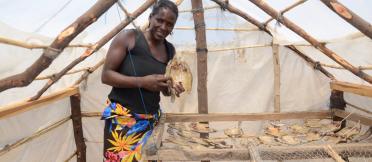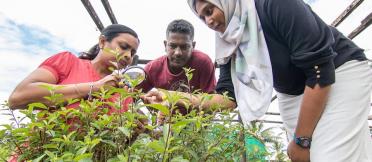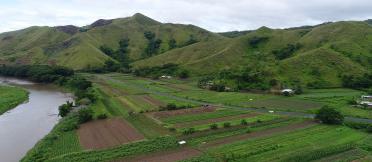While we know the COVID-19 pandemic has caused health and economic crises across the globe, it is also threatening to cause a prolonged food crisis in countries where food supply chains are vulnerable to disruption, including many of Australia’s neighbours.
In Timor-Leste, for instance, crop productivity in nutrient-poor soils relies on seasonal application of fertiliser. Farmers also rely on outside supplies of seed and other crop materials.
However, COVID-19 travel and transport restrictions have seen farmers go without these essential resources due to scarcity or price constraints. The results for many may include lower crop production, less food availability and, for smallholder farmers, inability to invest in future crops.
Then there’s the impact of government intervention. Australians have had the benefit of social protection from the pandemic through a range of government financial relief payments. But in other countries across the Indo-Pacific, the extent of relief schemes is variable, with countries having little social protection being more vulnerable to the impacts of COVID-19 on food security.
These are just some of the threats being identified in a three-stage assessment initiative being undertaken by ACIAR.
The first assessment—‘Food systems security, resilience and emerging risks in the Indo-Pacific in the context of COVID-19: a rapid assessment’—was released in May and involved significant input from people on the ground in partner countries.
The impacts identified in that first assessment include the sudden movement of people from urban to rural areas, putting pressure on local food-growing systems; freight restrictions disrupting the transport of food, fertiliser and other resources; adverse consequences of government policy—for example, around food trade restrictions and ‘wet’ markets; and long-term health implications for groups such as the urban poor as existing food insecurity is amplified by the latest disruption.
Since that first assessment, a team from the Australian National University (ANU) and the Commonwealth Scientific and Industrial Research Organisation (CSIRO) have been working with ACIAR and in-country partners to do a more detailed assessment of key threats, impact hotspots and potential solutions in Timor-Leste, Papua New Guinea (PNG), Indonesia, the Philippines, and some Pacific island nations.
Partners recently discussed the COVID-19 impact assessments with three of the contributors: Dr Dan Walker, ACIAR Chief Scientist; Dr Todd Sanderson, ACIAR Economics and Policy Program Manager; and Dr Steven Crimp, a Research Fellow with the Fenner School of Environment and Society at the ANU.





